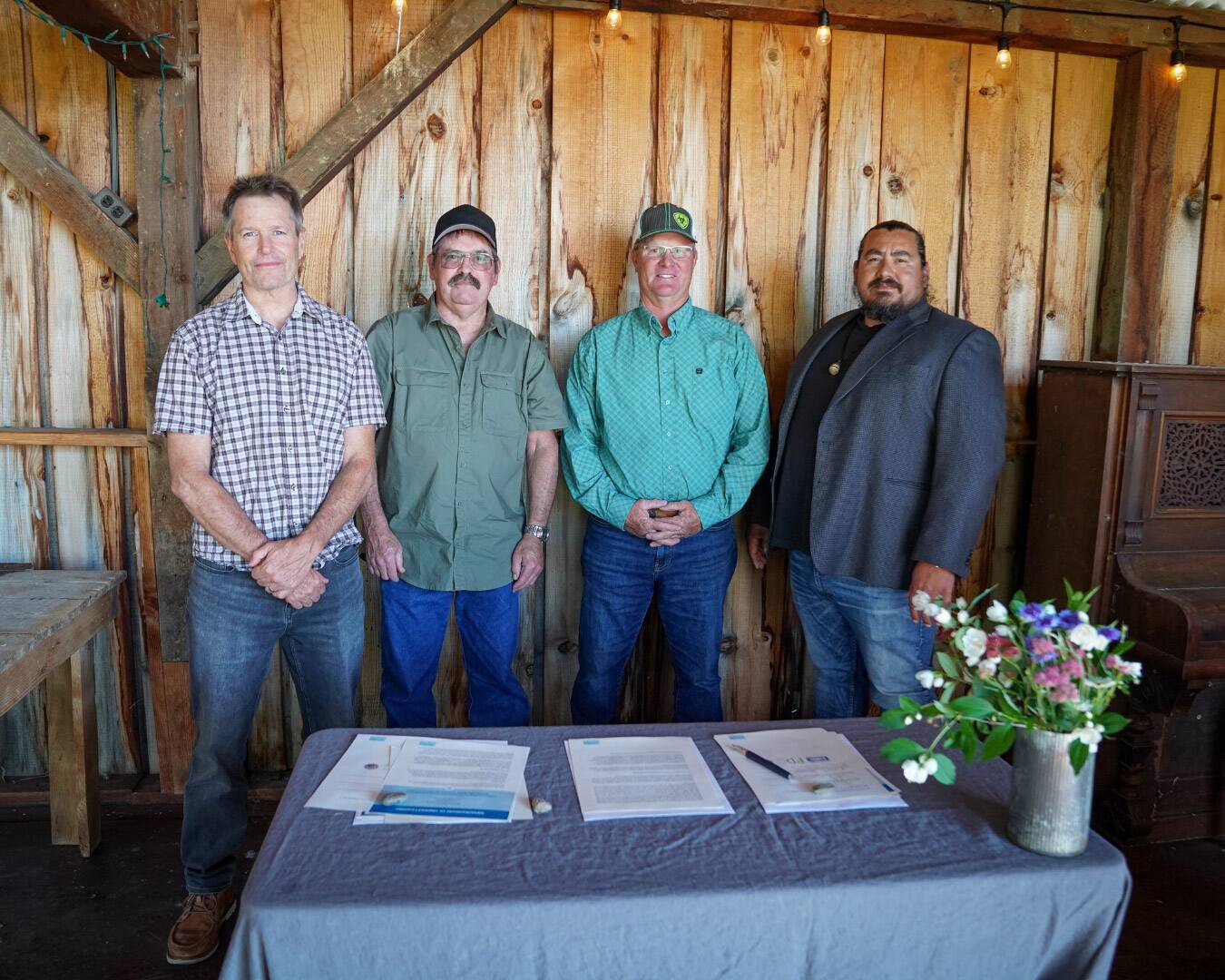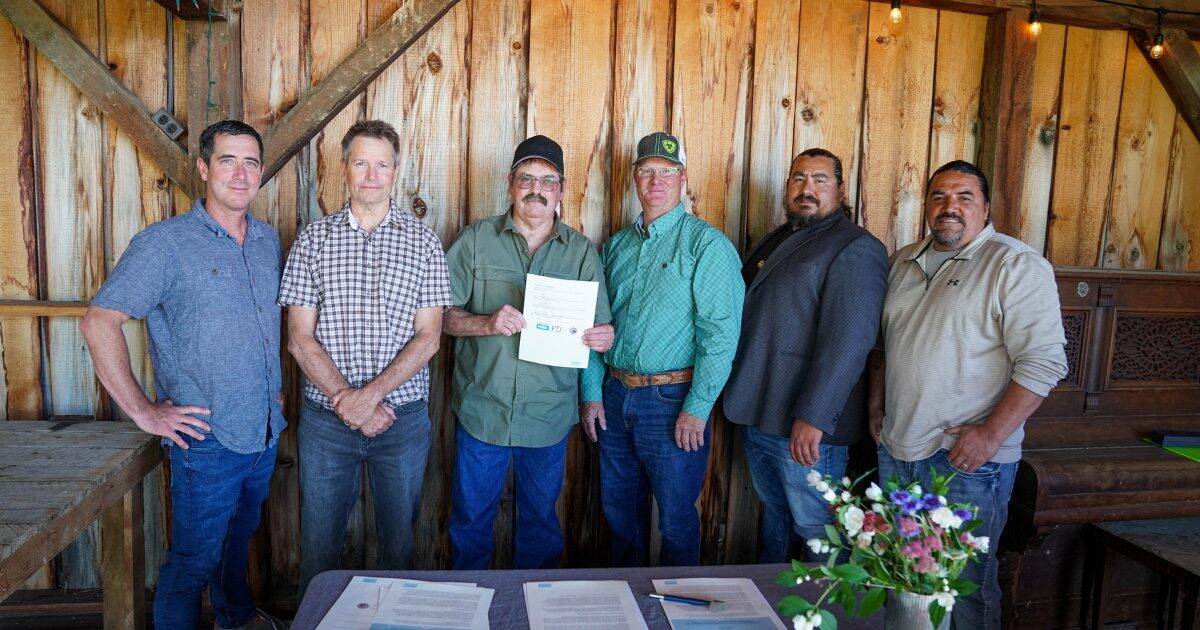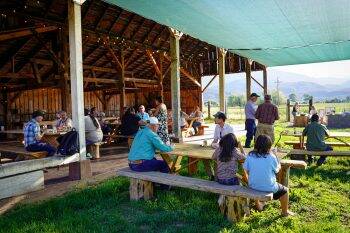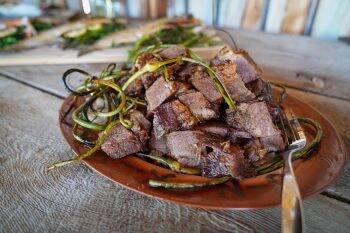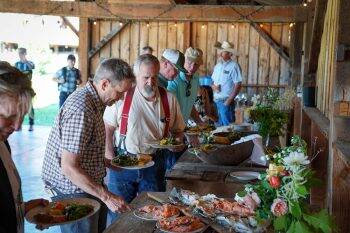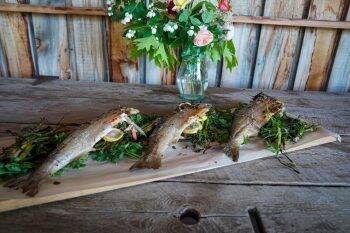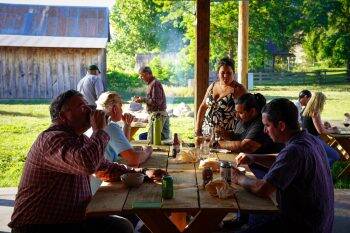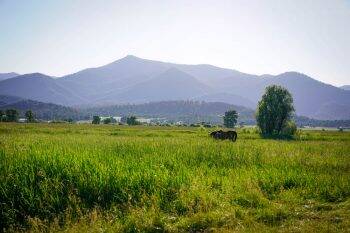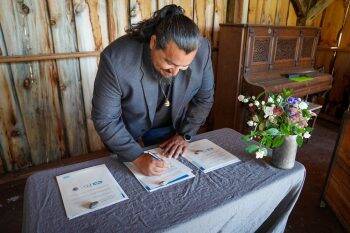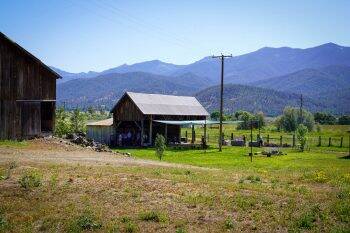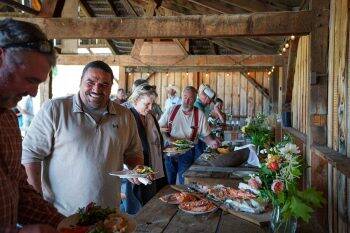Last week, CalTrout, the Yurok Tribe, and Farmer’s Ditch Company (FDC) gathered in the Scott River Valley to sign a Memorandum of Understanding (MOU) for collaborative work that envisions a future where salmon populations and family farms both flourish. The MOU formalizes our organizations’ partnerships and reinforces CalTrout’s commitment to landscape level solutions for all water users across the state – fish and people.
The primary objectives of the partnership are to restore salmon habitat and improve on-farm water use efficiency on the main-stem Scott River. Representatives from each organization joined together at Scott River Ranch in Etna, CA for a signing ceremony hosted by Gareth Plank of the Farmer’s Ditch Company. We shared a celebratory meal of salmon and organic beef raised in the Scott Valley, and we heard from members of each organization about this hopeful future for the community.
“We all rely on water – including our fish – and my team is excited to be a member of this innovative partnership working toward a future for water security and functioning ecosystems. This could be a real win-win for fish, farms, and California’s Tribal communities,” said CalTrout’s Mount Shasta-Klamath Regional Director Damon Goodman.
“The Yurok Tribe initiated this unique partnership in an effort to develop cooperative, mutually beneficial solutions that help the Scott River’s salmon runs recover,” said Yurok Tribal Council Member Ryan Ray. “We believe that strong fish runs and resilient ranching operations can coexist in the Scott River Valley. This agreement establishes the necessary framework to make it happen.”
"I'm excited to be part of making history instead of being swept away by it. This is an exceptional opportunity to sculpt a positive outcome for both the environment and the people that live within it," said rancher Gareth Plank, the host of the dinner, a member of Farmers Ditch Company, and the owner of the certified organic Scott River Ranch.
Scott River Tailings Reach Watershed Restoration Project
The Scott River is a crucial source of water for farms and ranches. Farmers Ditch Company provides water to 1,028 acres of family-owned farmland adjacent to the Scott River. The river also provides unique and highly productive habitat for fish including Chinook salmon, federally threatened coho salmon, steelhead, Pacific lamprey, all of which the Yurok Tribe depends on for sustenance and ceremony. The Scott River is one of the largest Klamath River tributaries and is the most productive coho salmon stream in not only the Klamath Basin, but all of California. In recent years, fish numbers have declined on the Scott, due in large part to the extended drought, a legacy environmental damage leftover from the gold mining era and disease outbreaks in the main-stem Klamath.
“As the dams come down, and the Klamath begins its recovery, fish will be looking for somewhere to go. This project will improve fish habitat on one of the Klamath’s biggest tributaries, the Scott River, providing surrogate habitat for these imperiled fish populations,” said Goodman.
Based on local landowner feedback, the project, the Scott River Tailings Reach Watershed Restoration Project, will relocate or modify Farmers Ditch Company’s point of diversion and provide irrigation system improvements which will increase flows for juvenile and adult salmon. The project will also restore degraded fish habitat and improve fish passage within a section of the river.
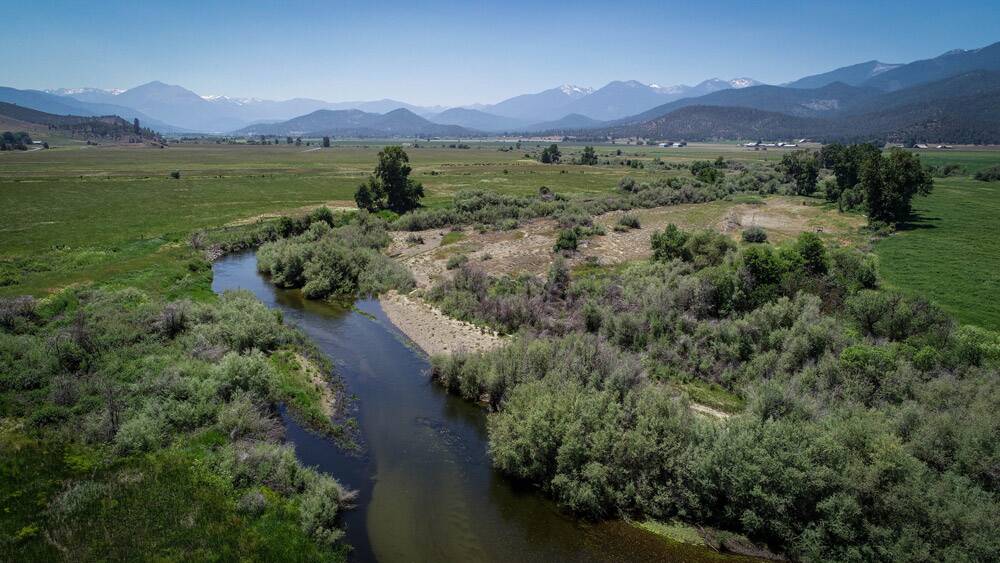
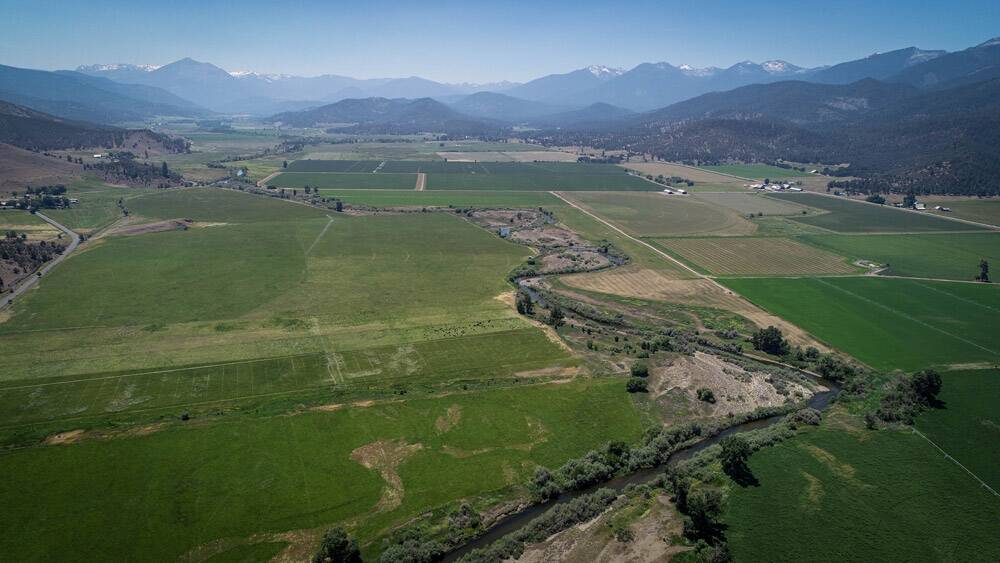
In the mid-1900s, a steam dredge left sprawling piles of rock in and along several miles of the Scott near Callahan. The mine tailings prevent fish from entering a key tributary, Sugar Creek, and result in a dry streambed in the summer, a critical time for juvenile salmon. The restoration work will aim to improve year-round flow and provide access to Sugar Creek as well as new habitats within part of the mine tailings reach.
The project is led by the Yurok Tribe and funded by the California Department of Fish and Wildlife. Brought together by the devastating impact of the extended drought, CalTrout, the Yurok and Karuk Tribes, Scott River Water Trust, Farmers Ditch Company, and other partners will be working cooperatively on the project.
The habitat and water system improvements will complement ongoing efforts by CalTrout and others to restore the Scott River – including the upstream tributaries - East Fork and South Fork Scott River.
“I hope this work will one day serve as a model that can be duplicated from the Klamath River’s headwaters to the coast,” concluded Yurok Tribe Vice Chairman Frankie Myers.
